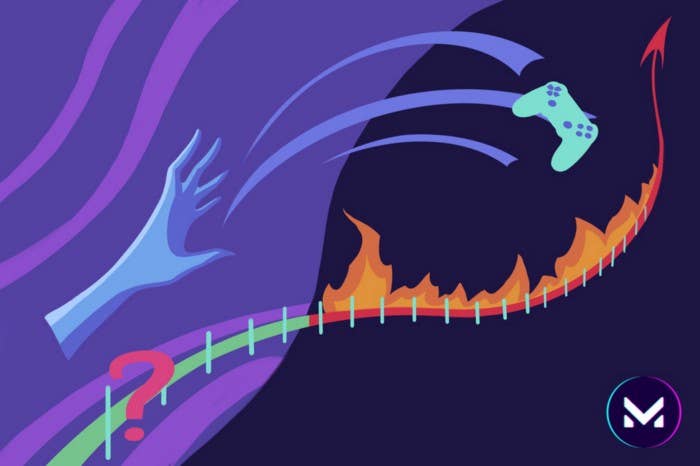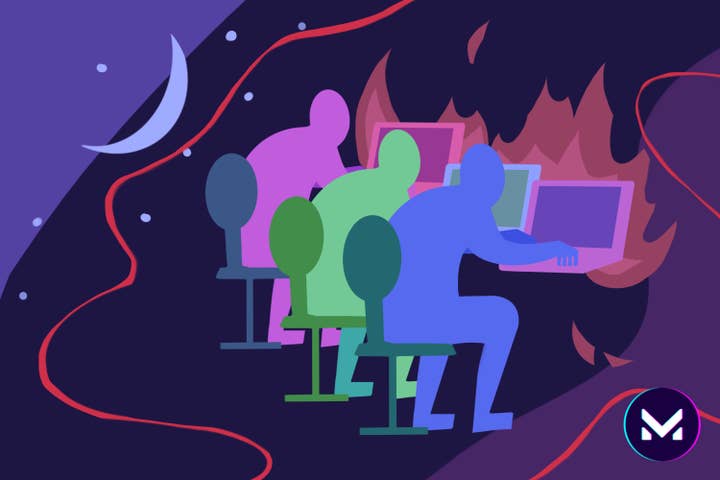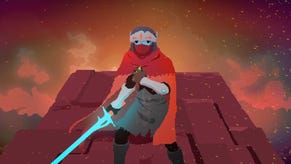Dealing with delays: A guide to production optimization and crisis management
META Publishing's Alessandro Cossidente explains how to avoid setbacks, and how to cope when it does happen
In a system as chaotic as that of game development, it is not uncommon for production to take longer than expected. In fact, throughout the gaming industry, deadlines are either moved or canceled completely every day. Thousands of games fail to see the light of day, often because of events that slowed their development to a crawl.
Still, as normal as a delay can be, it remains one of the toughest situations a developer has to deal with. Rescheduling a deadline not only adds pressure to the entire team but can also alienate your community and potentially hurt your sales. In other cases, not meeting a deadline might also mean missing out on an important chance to present your game at a major event or to secure the support of an investor.
So how exactly do you plan a delay-proof production cycle? And what should you do when a particularly important deadline looms closer with each passing day? In this two-part guide, we'll see how to deal with delays while working on your upcoming game.
Part I - Taking the right kind of precautions
Unbeknownst to many, delays don't simply happen out of nowhere. On the contrary, most of the setbacks you'll experience can be traced back to a very specific moment in time. You shouldn't feel scared, though. Especially for newcomers and smaller studios, delays are usually the result of small oversights and unintentional mistakes rather than lack of skills.
- Hold up a second! How do delays happen anyway?
Before we delve further, however, you should understand what exactly leads to a delay in the first place. Fans and outsiders often blame rescheduled launches on poor planning or company greed, but these play a minimal role in deciding whether a game will come out on time. On the contrary, most developers indeed begin working on a new project by laying down a production plan.
The bigger and more complex the project, the higher the likelihood that something will go wrong with it
Nevertheless, even a document that contains all of your game's details, including thorough timelines and budget breakdowns isn't guaranteed to save you from delays. After all, humans are good at estimating things but we rarely excel when dealing with absolutes. You can try to look at other studios for inspiration but here's the truth: the bigger and more complex the project, the higher the likelihood that something will go wrong with it.
Speaking of humans, the advanced bipeds that you share your workspaces with are hardly perfect beings. Someone within your team, for instance, might inadvertently make a mistake that needs time to be fixed. Others, instead, might be underperforming because of burnout. These events are impossible to predict, but they will happen and you should plan for them in advance.
Finally, in some instances, delays are completely unavoidable and out of your control. When a flood hit their offices in 2013, No Man's Sky developer Hello Games lost most of their equipment and servers. That set their project back by several months and greatly contributed to the game being delayed. Still, there was nothing that could have prevented the disaster. All the team could do when the water receded was salvage whatever wasn't swimming and start again.

- Risk assessment for better planning
Now that you know how delays happen, you can move to adapting your production techniques and minimizing their chances. Your contingency plan should start as early as your planning phase and cover the game's entire development cycle.
To achieve that, though, you'll need a solid set of data that you can rely on. Before your team starts working on a new title, you'll want to set aside a bit of time to thoroughly analyze the project itself. Among the many variables at play, here's what you should focus on:
- The actual scope and requirements of your project
- A full analysis of your market, competitors, and target demographics
- An objective evaluation of your team's skills, abilities, and criticalities
- The technology you'll use, including its perks and technical limits
- A functional order with which you'll tackle the actual development of the game
What you're looking for at this stage are all of those weaknesses that could potentially lead to a delay. Those might be particularly resource-intensive areas of development -- such as a complex level to design or intricate characters to model -- but also tendencies that your team has when it comes to their work-life balance.
Once your list is ready, all you'll have to do is create backup plans for all of the problems you've found. That way, if those issues eventually manifest themselves, your team will have a reference guide to fall back on.

- The importance of good project management
We spoke at length of how teams can influence the development of a videogame, now it's time to see how they help prevent delays. It seems obvious, but the people around you will ultimately be what makes or breaks the game you're creating. Their health, happiness, stress levels, and overall ability to focus will all change the speed at which tasks are taken care of.
If a studio can afford the extra-hire, bringing a project manager on board might greatly improve your team's efficiency. These mythical creatures spend most of their time looking for bottlenecks that could slow down production and for ways to solve them.
But that's not all a project manager can add to the development of your game. Especially on larger titles, PMs tend to have a say in anything from pre-production, to planning, to execution. They are the people that assign the best persons to each team and those who ensure everything proceeds smoothly throughout the process.
Most importantly, PMs also act as a balancing force within the studio itself. As they work in close contact with their colleagues, they are often the first to pick up and report on any personal issues that -- if left untreated -- might negatively influence your studio's productivity.

- Iterate like your life depends on it
Once you know that you can count on a team of professionals, you should also review the way your company approaches the actual workloads. Assigning tasks and having everybody report to a single person might work for smaller projects, but it risks slowing down the entire studio when the milestones begin piling up.
If you haven't already, consider adopting what is known as the Agile Framework. This iteration-based approach allows you to speed up production by dividing it into self-contained cycles of implementation, review, and adjustment that last from one to four weeks. While we won't be discussing the Agile Method in detail here -- as doing so would require its own series of articles -- there are plenty of resources on the internet to get you started.
On top of iterating, you can further optimize production by assigning reviews directly to the people that worked on a specific sprint. By doing so, you're not only giving upper management more time to focus on other things but also leveraging each department's knowledge. After all, nobody knows a task better than the people that worked on it.
Finally, there's a last, vital, advantage to going agile: adaptability. While traditional development cycles rely on a pre-structured series of tasks, agile development lets your team dynamically restructure their workload. With each iteration, department heads can gauge how long a specific part of the project took and adjust their deadlines accordingly.
- Don't skip out on quality assurance
Alongside stress, human error, and unexpected problems, quality assurance is one of the most likely parts of development that can lead to a delay. In addition, a majority of game developers tend to underestimate the time required to properly vet their project before release. It's not uncommon, especially in smaller studios, to leave that step until the very last minute.
Producers should already account for QA sessions when they lay down their production plans
Instead, producers should already account for QA sessions when they lay down their production plans. Making sure that each agile sprint ends with a period of rigorous testing, for example, can help your staff pinpoint and solve most of the project's issues ahead of time.
Understanding how to properly do QA is also an important part of avoiding delays. Most smaller studios, for instance, only play the game internally and have the people that worked on it evaluate its overall quality. While that might be a cost-effective solution, though, it is hardly the best one.
Due to their attachment to the title they're testing, developers are usually biased or might have a skewed perception of its actual state. In lieu of that, you should opt for hiring an external QA team or recruit a small part of your community for the task. To maximize its effectiveness, testing should also be conducted outside of the engine editor and on a number of different hardware setups.
Part II - When the unthinkable happens
Now that you have a general idea of what causes and how to avoid slow-downs, it's time to spend a few words on crisis management. Don't worry, though: it won't be the post-apocalyptic scenario you're now picturing in your head. Regardless, if you want to minimize the damage that a delay can cause, you'll need a strategy to deal with the crisis.
- Do we really need that, boss?
The first step you can take is as obvious as it is fundamental. Remember that neat list of features, content, and tasks you prepared at the beginning of your game's development cycle? Time to pull it out from the archives and put it to good use.
Since time-travel is still a few decades away and there's only a set number of hours you can dedicate to your game each day, the easiest way to reduce production times is usually to lighten the load for your team. More specifically, you'll want to take a look at your design and production documents and find all of those features that the game could do without.
For most developers, however, the mere thought of skewing their vision is enough to trigger a full-blown panic attack. What should you remove? What can stay? There's unfortunately no easy way to answer those questions. Generally speaking, though, content that doesn't directly affect your players' experience or perception of the game should be the first to go.
The solution is far from ideal in most scenarios, but it does allow you to weather a delay without pouring additional resources into the project. Plus, you can always add the missing content later through a free update or a DLC.

- Time to call in the cavalry!
If cutting features simply isn't a feasible solution, either because it would cripple the game or deprive it of something that makes it unique -- you might need to delegate some of the work to a third party. And while hiring a freelancer or outsourcing a part of your game can be a risk under normal circumstances, finding the perfect match becomes even more important when you have no time to spare.
For that reason, you'll want to approach this new hire in a very specific way. In other words, your entire selection process should be structured to minimize the amount of time it takes the new person to fit in and start working. Among the many paths to follow when selecting the more suitable freelancer from the mix, here's what we usually do at META Publishing:
- Include a paid test assignment in the selection process. This shouldn't only be a task that asserts a candidate's abilities, but also something that you can use in the game once it's ready. If you're testing multiple candidates at once, you can assign them the same task and compare the results directly. Also remember to keep deadlines short during this part, as the person you'll hire will likely have to work on a tight schedule.
- Ask for feedback from the candidate before and after the task is completed. A brief chat with the candidate before they undertake the tasks you have assigned to them lets you better understand their soft skills and whether they'll fit the profile. Similarly, reviewing the work together once it's complete allows the both of you to work out any potential issues and further evaluate your compatibility.
- Treat your freelancers as full-time employees. Just like you would with a full-time employee, you should always make sure that the people you're hiring will have access to group chats, join weekly meetings, and participate in other team-related activities. By introducing freelancers to the people they'll work with and constantly keeping them in the loop, you'll help your new colleagues fit in faster and further reduce downtimes.
- Pair the new hire with a veteran team member that can look after them. While the freelancer you chose probably possesses great skills and can excel in stressful situations, delays are pretty much the worst conditions one can work in. In these cases, it never hurts to have someone within the team that you can look up to or call upon in times of need. Take some time to choose the most suitable among your colleagues, though. The person you'll pair your freelancers with won't only assist them, but should also monitor their KPIs and the quality of their work.
- Your kingdom for a few more days
Left with no other option, you might find yourself wondering whether it'd be wise to move the deadline entirely. This, unfortunately, is where things begin to get complicated. Changing your game's release date or pushing a major milestone back is such an extreme move that it could potentially influence your entire project's ability to succeed. As such, it should only be considered as a last resort.
As you piece together your statement, remember to be transparent, sincere, and most importantly humble
If, for whatever reason, you find yourself forced to delay the launch of your game, there's a number of steps you must take to ensure your actions won't trigger a chain reaction you can't escape. Above all else, everyone that holds stakes within the company -- be it an investor, a team leader, or simply a colleague of yours -- should receive a thorough and detailed explanation of what led to the delay. You'll have to convince them that you absolutely need that additional time and that there's no other way to solve the crisis.
Before you pick a new release date, you should also analyze the current state of the gaming industry and look at what your competitors are doing. After all, you don't want to announce that your indie game releases just a few days before a major AAA game. At the same time, you should also avoid those periods when people are less likely to spend some of their disposable income -- such as right after a big holiday or a long period of sales, for example.
Finally, moving the release date of any game means dealing directly with its community. As you piece together your statement and update your social media, remember to be transparent, sincere, and most importantly humble. While there's no need to point a finger or blame anybody, your community are the people that supported you and they deserve to know the truth.
Or, at least, the parts of it they'd be happy to hear!

- The infamous concept of crunching
I want to start this paragraph with a personal note. At the time of writing, I wrestled with the idea of dedicating a part of this article to discussing crunch. Eventually, I realized that -- due to its role and the impact it had on redefining the gaming industry in the last few years -- the guide simply wouldn't be complete without it.
Still, I'd like you to take a moment and realize just how disruptive such a practice can be in the long run. Even without considering the ethical implications of imposing mandatory overtime on your team, there is no denying the negative effect that crunching can have on a worker's well-being. A burned-out co-worker, for example, will always be less effective than a well-rested one and might lose motivation quicker.
That said: if you still find yourself in the situation where crunching is the only way to meet your deadline; if none of the other solutions we discussed could be applied instead; there are a few things you should do as you prepare to drain your studio's energy reserves. Remember that these aren't aimed at further improving your team's productivity but rather at making the whole practice more bearable for them.
Your team's continued well-being is more valuable to you than meeting whatever deadline lies ahead
Before you even start assigning overtime to your co-workers, it is paramount that you create a list of tasks that must be completed during crunch time. Your colleagues should always be able to see the light at the end of the tunnel and have a clear understanding of when the crunch will end. Giving them these details will also make it easier for them to move forward and stay motivated.
Alongside the list we just discussed, management should also produce a detailed crunch timeline for each department. The document is supposed to feature each team's actual work hours, specify when those people are supposed to work overtime, and when the crunch will end. Remote workers can get flexible working hours but someone should check on them every once and again to make sure they aren't overworking themselves into a coma.
In addition, each announcement of a crunch period should be accompanied by a list of the people who'll be expected to work. Although this is often omitted, as everyone either volunteers or is coerced into crunching, your co-workers must still have the option to opt out of it. Remember that, as a producer, a CEO, or a member of upper management, your team's continued well-being is more valuable to you than meeting whatever deadline lies ahead.
Finally, and this should go without saying, only crunch if your studio can afford it. People that fully commit themselves to the project should always be rewarded for their efforts. Don't rely on crunching if you can't pay for it and always remember to keep your workers motivated. The quality of your final product will greatly depend on that.
In conclusion
As you reach the end of this guide, you should have learned a thing or two about production times and unforeseen circumstances. You now know how delays happen and have a set of tools with which you can minimize their chances. You also saw, however, that slowdowns are sometimes beyond your control and that there's really nothing you can do to avoid them.
Before you go, we want to leave you with the same words we've always told the teams here at META. The occasional slowdown is a normal part of any creative process. As long as you act quickly, can recognize the issues that led to them, and put your co-workers first, the game you're working on will be just fine.
The co-founder of IGDA Turin, Alessandro Cossidente has been handling PR, comms, and influencers at META Publishing since mid-2020. You can email him at alessandro.cossidente@metapublishing.io. This article is the result of a collaborative effort among various members of the META Publishing team and includes notes from both META's lead producer Alina Brazdeikene and producer Mikhail Matytsin.







